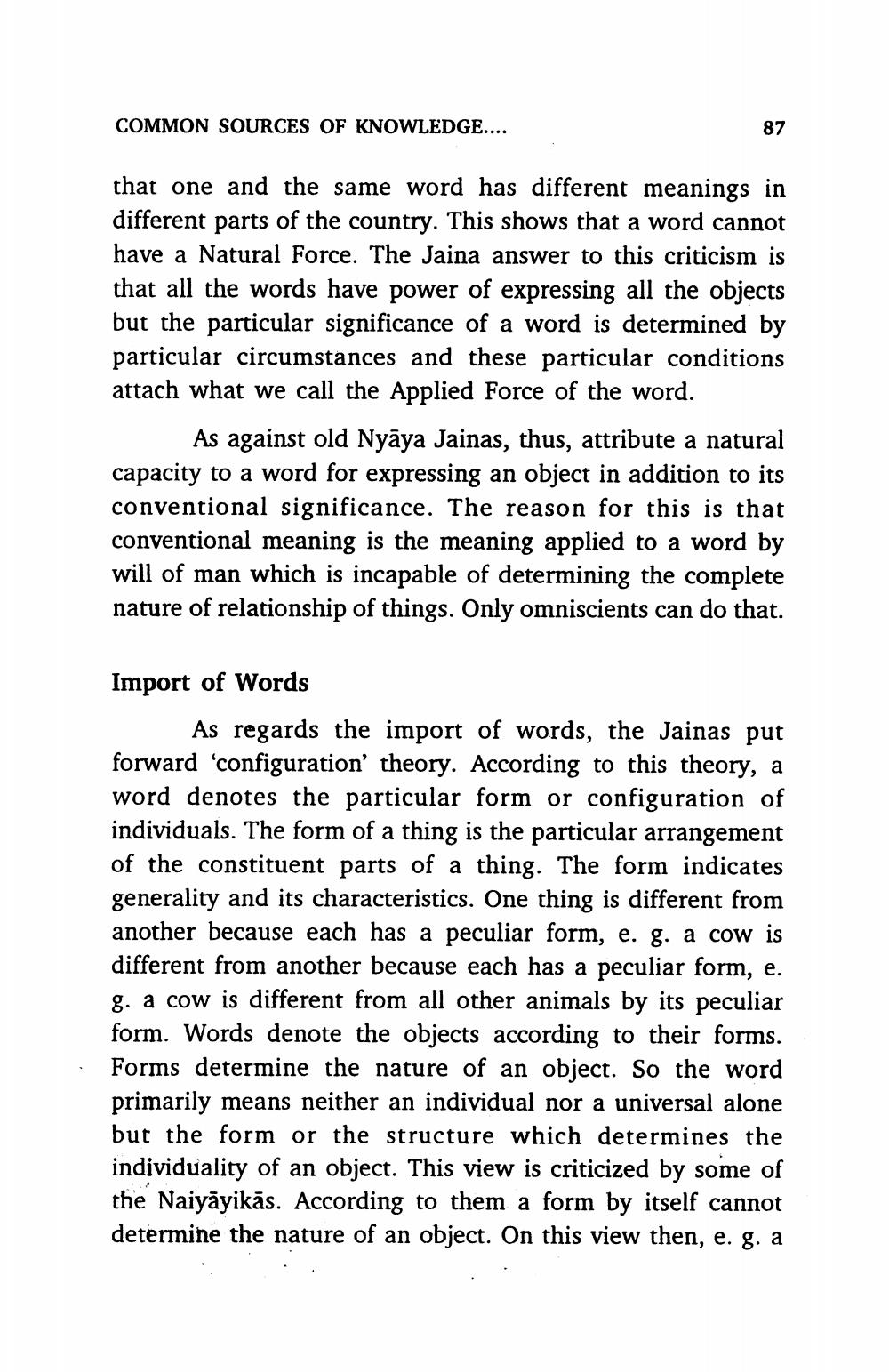________________
COMMON SOURCES OF KNOWLEDGE....
87
that one and the same word has different meanings in different parts of the country. This shows that a word cannot have a Natural Force. The Jaina answer to this criticism is that all the words have power of expressing all the objects but the particular significance of a word is determined by particular circumstances and these particular conditions attach what we call the Applied Force of the word.
As against old Nyāya Jainas, thus, attribute a natural capacity to a word for expressing an object in addition to its conventional significance. The reason for this is that conventional meaning is the meaning applied to a word by will of man which is incapable of determining the complete nature of relationship of things. Only omniscients can do that.
Import of Words
As regards the import of words, the Jainas put forward 'configuration' theory. According to this theory, a word denotes the particular form or configuration of individuals. The form of a thing is the particular arrangement of the constituent parts of a thing. The form indicates generality and its characteristics. One thing is different from another because each has a peculiar form, e. g. a cow is different from another because each has a peculiar form, e. g. a cow is different from all other animals by its peculiar form. Words denote the objects according to their forms. Forms determine the nature of an object. So the word primarily means neither an individual nor a universal alone but the form or the structure which determines the individuality of an object. This view is criticized by some of the Naiyāyikās. According to them a form by itself cannot determine the nature of an object. On this view then, e. g. a




